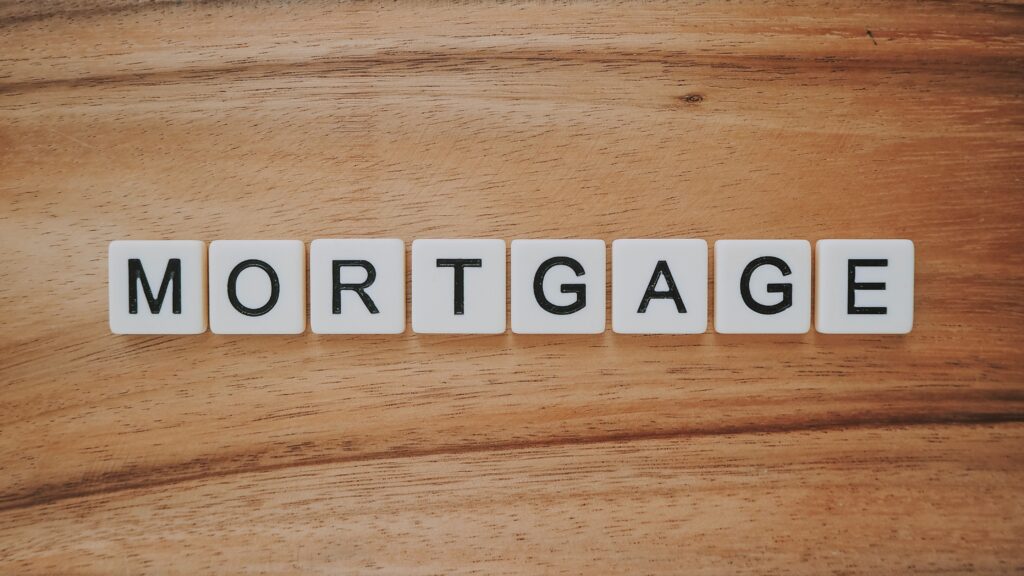
When a home is being sold, there are many aspects of the transaction that need to be tended to if you want to be certain that the sale goes smoothly. Unless the buyer purchases a home solely with cash, they will need to obtain a mortgage by applying for one with a lender. In the event that the buyer signs a contract and then finds out that they are unable to receive financing, a mortgage contingency will go into effect.
Loan contingencies are clauses that provide the buyer with the opportunity to cancel the entire purchase contract without needing to pay a penalty. The buyer will also be given a refund of the earnest money deposit that they submitted when they first signed the deal. Both buyers and sellers are able to benefit from loan contingencies.
For the seller, a contingency being triggered allows them to start showing their home to other potential buyers immediately. As for buyers, it offers some financial protection as they attempt to close on the transaction. For instance, one type of contingency is an inspection contingency, which provides buyers with the ability to cancel the contract if substantial problems are detected. The following offers a more detailed look at loan contingencies and how they work.

What Is a Loan Contingency?
Loan contingencies are clauses that are placed into a purchase agreement on a home that allows the contract to be voided if specific conditions aren’t met. The clause is typically added to provide the seller and buyer with certain protections in the event that mortgage financing is unable to be secured. These contingencies also determine when the mortgage approval needs to be made by, which is usually around one week before the closing date.
Buyers can obtain a preapproval for a mortgage loan before they make an offer on a home. However, these buyers can’t be given full approval until the lender is able to verify borrower and property details. In many situations, buyers will sign the approval before they receive approval for a mortgage.
When a contingency is present in the contract, either party is able to back out of the deal before a mortgage loan is secured without incurring penalties. As mentioned previously, the earnest money deposit would also be recovered by the buyer. If the buyer backs out of the deal after obtaining the home loan, they won’t receive the deposit.
The majority of loan contingency clauses include lending terms that are designed to identify a set dollar amount as well as the interest rate that the buyer requires for approval. All loan closing fees should also be included in the document.

Other Types Of Real Estate Contingencies
There are several contingency types that can be placed into sale contracts to effectively protect sellers and buyers from any unexpected issues that occur throughout the closing process. The main types of real estate contingencies include:
- Appraisal contingencies – In the event that a home appraises for an amount that’s lower than the purchase price, the buyer is legally able to get out of the sale. If the buyer continues seeking the property but the seller won’t lower their asking price, the lender will ask for a larger down payment.
- Home inspection contingencies – The buyer will request a home inspection before agreeing to go through with the purchase.
- Home sale contingencies – A buyer is able to back out of the contract if they can’t sell their current property before the closing date.
- Title contingencies – When a buyer wants to have a clear title for the property, they can ask that a title search be performed to look for potential easements or liens.
How Does A Loan Contingency Work?
When a buyer wants to go through with purchasing a property, the initial step involves sending a purchase offer directly to the seller. If the buyer hasn’t received preapproval for a mortgage loan or doesn’t know if they’ll qualify for a loan, the mortgage contingency can be placed into the offer. After each party signs the agreement, the buyer must provide an earnest money deposit, which will be followed up by the seller removing their property from the market.
The buyer then has a specific period of time to receive financing from their lender of choice. If the mortgage is approved, the buyer will send a mortgage commitment letter to the seller, which allows for the final aspects of the closing process to go forward.
When the buyer is unable to qualify for a loan or doesn’t secure the financing in time, the contract can be terminated. As touched upon earlier, the presence of a mortgage contingency clause means that both parties have the ability to back out of the agreement throughout the contingency period without any penalties being applied. At this time, the seller can start searching for more offers, while the buyer will be given their earnest money deposit.

What Goes Into a Loan Contingency Clause?
Both the seller and buyer need to agree on the conditions detailed in a loan contingency. These details should outline the lending terms that apply to the deal, which include everything from the mortgage contingency deadline to the closing fees that the buyer and seller are expected to pay.
Mortgage Contingency Deadline
As touched upon earlier, a mortgage contingency period determines the amount of time the buyer will have to obtain the necessary loan. In most cases, the deadline is around 30-60 days once the agreement has been signed. Each party must agree on the timeline.
In certain situations, sellers and buyers could decide to include an extension date in the agreement, which allows the contingency period to last longer than the initial date if the buyer can’t obtain the necessary loan early enough. Keep in mind, however, that the seller doesn’t need to approve the contingency extension and will be able to walk away from the deal in the event that the contingency period expires.
The Different Type of Mortgages
The majority of mortgage contingencies will specify the exact mortgage type that the buyer will need to secure, which could be a conventional mortgage, a fixed-rate mortgage, an adjustable-rate mortgage, an FHA loan, a VA loan, or a USDA loan. Once loan options have been reviewed, each party will need to agree on the mortgage loan that the buyer must obtain before the closing process continues.

Amount Of Money Needed
Likely the most important piece of information included in the contingency clause is the specific loan amount that the buyer has been approved for. It’s important to understand that this condition is an additional protection that the buyer has. If the buyer is approved for the mortgage loan but is unable to receive the amount of money needed to go through with the purchase, the contract can be canceled without any penalties.
Maximum Interest Rate
Buyers need to tell sellers what interest rate they are willing to pay each month. By providing this information, the mortgage contingency will allow the buyer to get out of the contract if the home loan is approved at a rate that’s higher than the buyer wants to pay.
Closing or Origination Fees
Before any purchase agreement is signed, the closing costs must be established. Most of these fees are paid by the buyer and are necessary to secure the loan. These costs can include origination fees, which cover the underwriting, processing, and eventual funding of the mortgage.

Should You Waive a Mortgage Contingency Clause?
It’s possible to waive a mortgage contingency clause in certain situations. While this clause is automatically included in the majority of real estate agreements, there are times when buyers may want to waive this clause based on their circumstances. If the buyer is looking to pay for the home in cash, waiving the contingencies early on might push the seller to accept their offer over others that have been received.
This option can be effective when used in a competitive market. In fact, there are times when sellers will request that buyers waive the contingency. However, deciding not to include this clause in a contract has its risks. If the mortgage application isn’t approved after the clause is waived, the buyer will immediately lose the earnest money deposit and may be tasked with paying more fees.
Mortgage contingency clauses are useful protections for sellers and buyers in the event a situation occurs that no one predicted. Because of how much information needs to be included in one of these clauses, each party must be willing to discuss all of the lending terms while negotiations are ongoing. Now that you have a better idea of what loan contingencies are, you should know which ones you’d like to include in the purchase agreement for your next home.